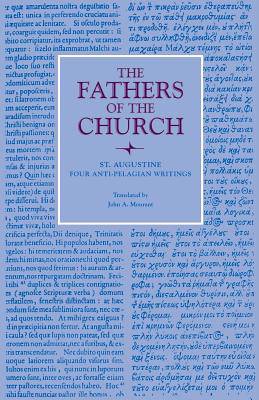
- Afhalen na 1 uur in een winkel met voorraad
- Gratis thuislevering in België vanaf € 30
- Ruim aanbod met 7 miljoen producten
- Afhalen na 1 uur in een winkel met voorraad
- Gratis thuislevering in België vanaf € 30
- Ruim aanbod met 7 miljoen producten
Zoeken
€ 72,95
+ 145 punten
Omschrijving
This volume brings together writings from early and late stages of Augustine's involvement in the Pelagian controversy. On Nature and Grace and On the Proceedings of Pelagius both date from A.D. 415-16 and constitute two of Augustine's most extensive treatments of the actual words of Pelagius. On the Predestination of the Saints and On the Gift of Perseverance were probably written in A.D. 428, near the end of Augustine's life. Augustine's opponents in his writings, he admits, are not really Pelagains at all. They were monks of Provence, led by John Cassian, who were disturbed by the more extreme consequences of the theology of grace and predestination that Augustine had worked out in his controversy with the Pelagians. Since the sixteenth century, they have been labeled ""semi-Pelagians."" Taken together, these writings provide an occasion to examine the continuity and development of Augustine's theology of grace. They also afford much insight into the fifth-century status of many theological questions that are alive today, such as the extent of the damage done to human nature by sin, the theology of original sin, the effects of baptism, and the true meaning and scope of God's salvific will. These treatises include some of Augustine's most significant statements on grace. Intended for scholars and students of theology and philosophy, this edition includes three treatises translated for the first time from modern critical texts. William Collinge's trenchant introductions offer detailed accounts of the historical and critical work done over the hundred years since the last publication.
Specificaties
Betrokkenen
- Auteur(s):
- Vertaler(s):
- Uitgeverij:
Inhoud
- Aantal bladzijden:
- 372
- Taal:
- Engels
- Reeks:
Eigenschappen
- Productcode (EAN):
- 9780813213064
- Verschijningsdatum:
- 1/01/1992
- Uitvoering:
- Paperback
- Formaat:
- Trade paperback (VS)
- Afmetingen:
- 140 mm x 216 mm
- Gewicht:
- 471 g

Alleen bij Standaard Boekhandel
+ 145 punten op je klantenkaart van Standaard Boekhandel
Beoordelingen
We publiceren alleen reviews die voldoen aan de voorwaarden voor reviews. Bekijk onze voorwaarden voor reviews.











